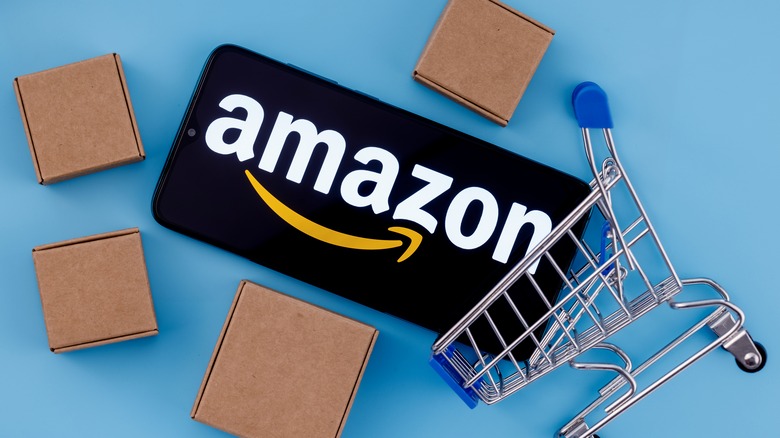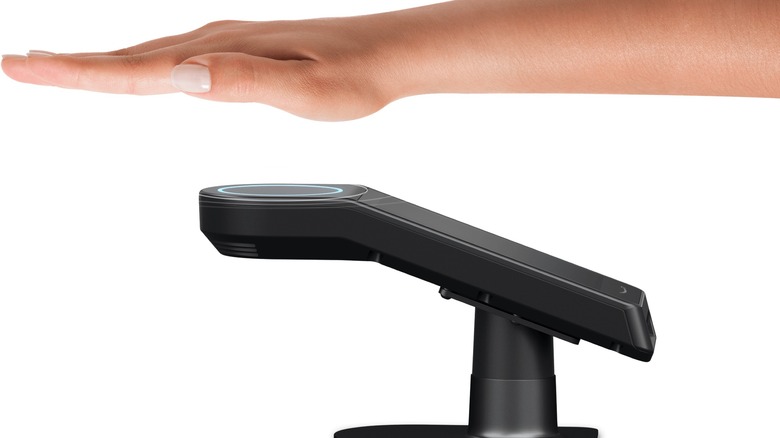What Whole Food's Palm-Scanning Payment Means For The Future
We may receive a commission on purchases made from links.
Nobody is upending the retail industry quite as hard as Amazon, and its one-stop shop has undeniably redefined what it means to be a brick-and-mortar retailer in the modern era. Though it hasn't exactly been as much of a success in the personal electronics arena as, say, Apple, it is still innovating on a much broader level. Such innovations include delivery drones, which can deliver goods to your home just as easily as they can surveil it.
Amazon is also responsible for creating a new biometric scanning and contactless payment platform that can speed up shopping and checkout times by allowing you to register the unique biometric properties of your hand, including the structure of your veins and fingerprints, to a linked credit card. This new platform is called Amazon One, and it was first introduced in September 2020 in select Seattle-based Amazon Go stores. Throughout 2021, Amazon offered credit incentives as it expanded the platform to new venues (literally), and now the company has expanded its Amazon One registration and checkout stations to over 65 Whole Foods locations across California.
Amazon One now available in parts of Los Angeles and San Francisco Bay Area
Amazon announced the addition of 65 new Whole Foods locations to its Amazon One contactless payment platform on August 9, as reported by Supermarket News. This announcement came on the same day that the registration and checkout systems activated in Whole Foods locations across the greater Los Angeles and San Francisco metropolitan areas. Since 2021, Amazon has rolled such systems out to Whole Foods locations in Austin, New York City, and Los Angeles.
Signing up for the Amazon One service is as easy as approaching any of the kiosks, holding your hand over the scanner, and then inserting your credit card and inputting your phone number. It sounds like you may need to activate your Amazon One account for each new store you visit, which only involves inserting your credit card once per store.
While it's exciting for contactless shopping to make a splash during the COVID-19 pandemic era, it's reasonable to be concerned that unmitigated access to biometric data could be abused, given Amazon hasn't kept itself safe from controversy surrounding its treatment of privacy. For instance, the company has come under fire regarding its Ring camera, a static security camera that also acts as a doorbell. Amazon has openly cooperated with over 2,000 law enforcement parties who can supposedly request to see anything that may or may not have been recorded by the camera, and this has ignited concerns about civil rights in an Amazon-dominated market.

